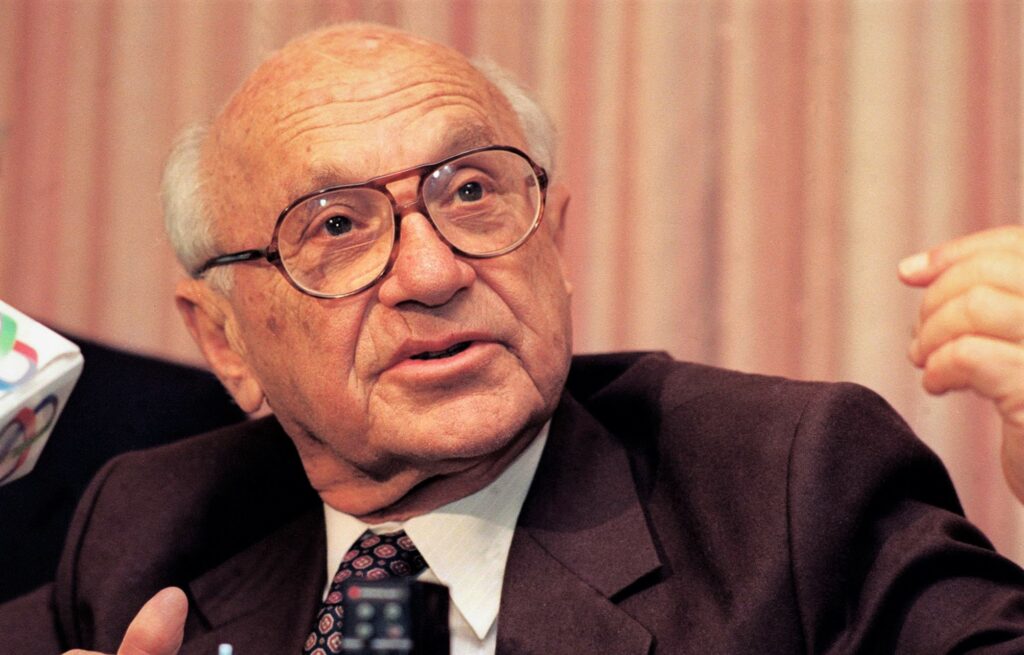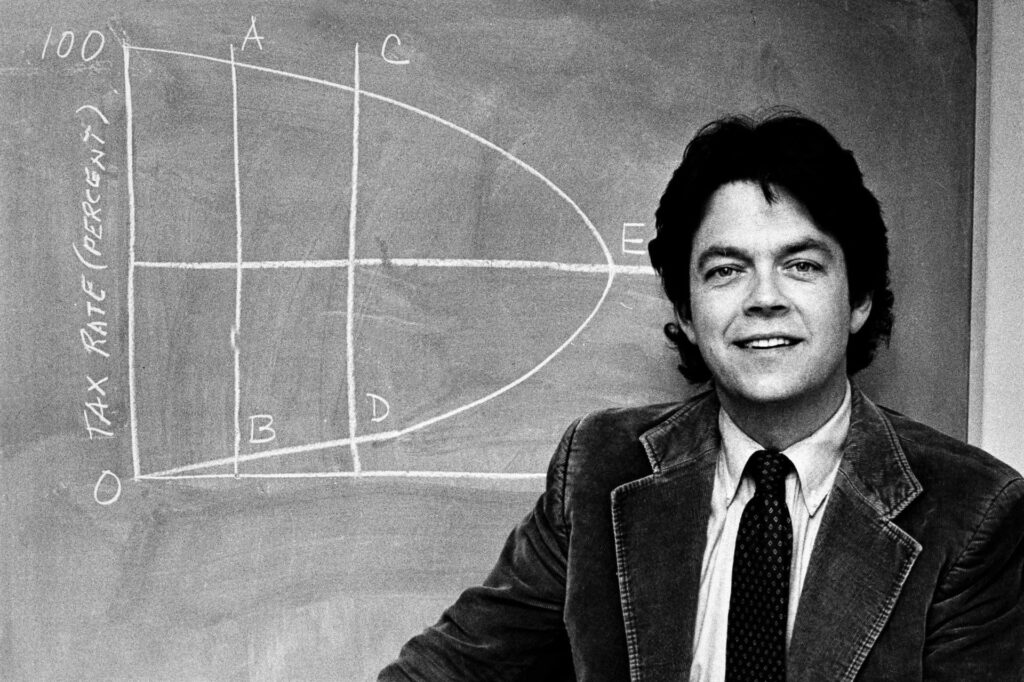Leading economists analyze the processes and phenomena of economic life in society, form systemic and scientific financial worldviews, determine the mechanisms and structures of market interaction, and solve other functional tasks. The theorists presented in the review are the founders of the key concepts of modern economics.
Milton Friedman
Milton Friedman was born on 31 July 1912 in Brooklyn, New York, USA. The economist is the author of many books, monographs, scientific-public works on economic and political topics. In 1976 he was awarded the Nobel Prize for research in the field of consumption, monetary theory, history and stabilization policy.

Friedman is known as one of the founders of the second wave of Chicago price theory, and as an active critic of the famous Keynesian theory. The economist insisted on the existence of a natural rate of unemployment, arguing that inflation would accelerate if the rate was exceeded. Milton Friedman predicted the emergence of stagflation and supported the monetarist system with its constant small expansion of the money supply.
The analyst’s concepts of monetary policy, taxation, privatization and deregulation became the basis for a number of government-level programmes. Friedman’s theories served as a platform for the Fed’s actions during the global financial crisis in 2007-2008.
Paul Samuelson
The date and place of birth of Paul Samuelson, a prominent macroeconomist, is 15 May 1915 in Gary, Indiana, USA. The scientist is the recipient of the 1970 Nobel Prize in Economics.
Samuelson initiated the merger of neoclassical microeconomics and Keynesian macroeconomics into a single concept. Today’s economists read his textbooks, in particular Foundations of Economic Analysis and Economics: An Introductory Analysis, which are the most authoritative and popular in the field.
Paul Samuelson argued that dictatorships and wars are largely due to the failure of the global community to solve current economic problems. Adequate fiscal policy by states not only affects budgets and raises living standards, but also promotes peaceful coexistence of people in the world.
Arthur Laffer
Arthur Laffer’s date of birth is 14 August 1940. Like many other famous economists, the figure promoted ideas focused on current market supply.
Laffer was one of the first to draw attention to the pattern of the effect of tax rates on revenue. This phenomenon was later named after him. The effect, shown in the form of a graphical curve, indicates under what conditions a reduction in tax rates can cause an increase in cash receipts.

The Laffer curve demonstrates the stimulating effect of tax cuts, resulting in higher private and public savings, investment, employment, production and earnings. There is, however, an inverse effect in the form of increased income stratification and minimisation of social guarantees.
Herbert Simon
Herbert Simon was born on 15 June 1916 in Milwaukee, USA. The scientist is a recognised authority on the social, political and economic sciences, as well as the developer of the Newell-Simon Hypothesis and winner of the Nobel and Turing Prizes.
Herbert Simon has been involved in the development of artificial intelligence, information processing, decision making, organization theory and complex systems. The analyst was one of the first to calculate the architecture of complexity, proposing inferential accession mechanisms to explain power laws. The theorist is the author of Organisations, Administrative Behaviour and The New Science of Managerial Decisions.
Herbert Simon’s research is based on a desire to replace the simplistic classical approach of economic modeling with the more modern concept of unified decision-making. This will maximize entrepreneurial profits and ensure a positive impact on production volumes and costs.
Harry Markowitz
Harry Markowitz was born on 24 August 1927 in Chicago, USA. He is one of the leading economists, a professor of finance and a recipient of the Neumann and Nobel prizes.
He is internationally renowned for his pioneering research into the theory of investment portfolio efficiency. Many academic economists are guided by his work when investigating investment allocation risks, correlation and diversification of expected returns.
Markowitz practices the application of mathematical calculations in analyzing stock markets. His research and analysis of the impact of risk has been fundamental to a number of asset allocation transactions in a portfolio under uncertainty.
Douglas North
The birth date of American economist Douglas North is 5 November 1920. He is a 1993 Nobel Prize winner for Economic History Research and a recipient of the Commons and Smith Prizes.
The President Emeritus of the European Association for Evolutionary Political Economy has also carried out significant work in the field of modern institutional economics. His research emphasizes the importance of the historical dimension of US and European development as part of the industrial revolution.
Douglas North is the founder of the development of cliometrics, focusing on the existence of two major economic revolutions relating to land rights and the emergence of copyright.



